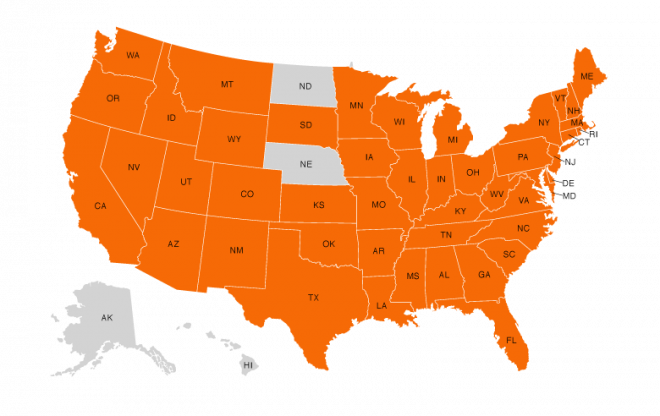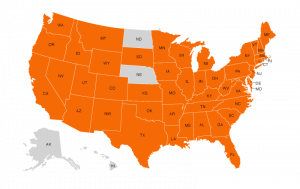
By now you may have heard of “Canine Influenza” but what is it really? And how does this new virus affect your pet? Why is there more than one Influenza vaccine?
Canine influenza is a highly contagious respiratory infection caused from an Influenza Type A virus. It can be spread by direct contact with an infected dog, being around an infected dog who is coughing or sneezing and coming in contact with contaminated hands, clothing or other surfaces. Studies show that it is very closely related to the equine influenza virus, suggesting it has evolved and jumped species. At this point there is no evidence to show that this disease is zoonotic (able to be transmitted to humans). Other strains of the influenza A virus are responsible for illnesses in humans, birds and pigs. At this time 46 states have reported cases of canine influenza, including Maryland.
Just how contagious is canine influenza? Similar to the human flu, it is highly contagious unless the dog has already been sick with it and has recovered. This is largely because immunity has not developed in the canine population. Approximately 50-80% of infected dogs will show clinical signs of the disease, generally in a mild form. About 50% of infected dogs develop immunity to the disease without showing any signs. Dogs who are around other dogs on a regular basis are more susceptible to catching the virus. For example: dogs who are in shows, go to the groomers, going to parks, going to the pet store or a dog obedience class are more likely to come into contact with others also. The most common sign of canine influenza is a persistent cough. On some dogs, this is a “productive” cough while with others it is a dry cough very similar to the cough of a dog with “kennel cough.” This makes the actual diagnosis of canine influenza difficult. Only about 20% of the dogs with canine influenza with get more severe symptoms such as pneumonia and a high fever. A very small number of dogs have died from complications associated with the disease.
Now the question is how to protect your dog so he does not become infected with canine influenza. The most basic thing to do is keep your dog in good overall health. This helps to keep their immune system strong and able to fight off infection. There is also a new “Bivalent Canine Influenza” vaccine that is available to those dogs who are at risk. This vaccine includes both strains (H3N2 and H3N8) of the canine influenza virus that has been seen. This vaccine has been proven to significantly reduce the severity of influenza and the length of time that a dog is sick. Initially a series of 2 injections is required 3-4 weeks apart followed by annual vaccinations thereafter. Many kennels and grooming facilities are now requiring the canine influenza vaccine before the dog is allowed to stay there. If you are planning on boarding your pet or have your dog scheduled for grooming it is advisable to check with the facility and see if they require the influenza vaccine for your dog.
Call our office for any further questions at 410-848-3100.

